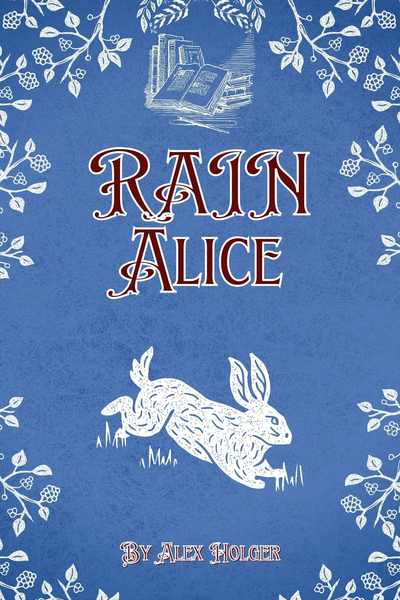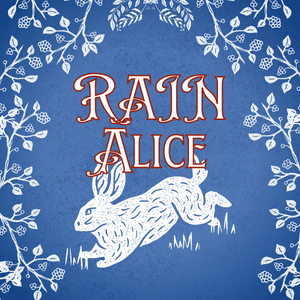I remember the snow.
Back in those days, snow in the countryside meant a thick blanket covering everything for miles around. Everything, and I mean everything, slowed down those days. Snow everywhere on the grounds of the house, and beyond. Guests -which we had in spades those days- had to make their way from the station or the main road. A road, which my mother flanked with sturdy elms and flower bushes. The only thing anyone could see from the station was not the house, nor that road, but an almost endless iron fence shielding one side of the estate. Everyone came from that side, since any of the others limited and got engulfed long ago by an almost endless forest.
I remember the mansion.
Featherhill House has grown a lot since those days. Much like a malignant tumour with weird shapes and sharp corners. But back then it had a very logical shape and size. A Georgian Era house, with the indoor plumbing and gas light fixtures from the Victorian Age forced onto it. I remember the windows the most. Those small windows with rectangular panels and strong frames. Long before I was born, the large brick manor became the county seat for a lord whose county is nowhere on a map, and its exterior showed this. It breathed power over the land it stood, and made the guests -most of them- stop when looking at it the first time.
“Now, everyone remain still for a moment,” the photographer my father hired said.
A flash of light, and then a couple of minutes of me, mother, and father, standing still in a corner of the ballroom. Well, me and father stood, mother sat in a chair in front of us.
I remember the smell.
The smell of gunpowder overcame any other smell. Not the smell of the good food, the perfumes from Paris of the guests, or the slight dust on the tapestries on the walls. I hate the smell. Smells in general are overpowering to me, and it only became worse with the passing of years.
I inherited this hatred from father, who dealt with the world before plumbing and the entirety of the mediaeval period. Which is why he didn’t make photography one of his hobbies. Loved the chemicals, but hated the smell. It stuck to everything, from curtains to rugs, to anything made of fibres. But photography had become a fad in the last year or so, and he was avant-garde, though few in Britain would call him such. Therefore, inviting a photographer, one of the few who existed at the time, gave him status as a modern man in a modern world.
“Thank you. You can move now, milord.”
I remember the stiffness.
Not just the stiffness of the muscles by standing there waiting for the image to set, but the stiffness on which Featherhill seemed to run. Take time and schedules for example. By the time we walked away from the photographer, some of the guests had already arrived, and someone had taken their luggage upstairs to the rooms. Early, at least considering the standar of the era. This was not a mistake, but by design. Father’s design. Moving people from all of Britain and the continent to an isolated area in the north of Wales in the midst of winter, came as a hazardous task. Most of them came by train, though some made their way by coach, horse, and, on one occasion, hearse. Don’t ask. I don’t know the answer to that one.
People came due to father’s connections and the fame he had acquired in parliament. Most of them did. Some came to see mother, as one of the most important women on the country regarding her rallying against the Crimean and Afghan wars. And a small group came as a chance to talk with uncle, to praise his roles on stage. Two or three came for the three things. Mostly writers of intellectuals. From that year alone, I remember Charles Dickens and Catherine Gore.
I remember the Christmas Ball.
1859 was the last one to be celebrated at Featherhill. It required a veritable army of servants to make everything work. Again, the last time the house had a full staff working there. Decorations on walls, ceilings, hanging from fixtures, and everywhere else. Glasses by the hundreds were cleaned, silver polished with care, and even scrubbed the rugs, which were already old when the house was built.
Guests came, and soon followed all those pieces of protocol which came second nature to them. The musicians were in place, playing soft tunes. A bunch of footmen -both members of the staff and hired help for this occasion- ready to begin servingTo those of you who know, I won’t bore you with details which will take pages and pages of it. To those who don’t, I ask for you to trust me when I tell you you are not missing a thing among those boring details.
As a child, something I had to be back then, not many people paid attention to me. This gave me free range -at least as free as it could be following protocol- to walk around and listen to the guests’ conversations. None of them were tremendously entertaining, but, since I had but an hour or so before they sent me to my room, gave me a moment to learn a few things from my parents’ peers.
“I’ve heard the Marquis of Isigny hasn’t returned from his trip to the continent…”
“The import of cotton from the Americas will bring us…”
“As far as we are concerned, the reconstruction of the Rosemère Lodge is running in the red…”
“Delays on the trains to the north…”
“Discontent in Ireland…”
“The most wonderful piece of lace…”
“The following London season we should…”
“That last plan from Wotan…”
“Could you bring me another drink, please?”
So entranced I was listening, that for one moment I didn’t see where I was going. I crashed, face first, into a man. A simple man, not much to look at, even back then. I apologised profusely, but he seemed to be inside his own world, muttering to himself. He even walked away in that stupor, now focused on a very tall man with curly light hair who just entered through the door.
Soon, before I could do anything else, the governess took me upstairs to my room. I undressed by myself -something my parents allowed me to do- and felt something in one of the foldings of my dress.
A small pocket watch.
I heard footsteps coming upstairs. I hid the watch under the dresser, before getting into bed. My parents came in, to wish me goodnight before going downstairs again. We talked about the plans my father had to travel to America, since both of them had issues to solve in Boston. He had some business dealings with his company, and she was expected to give a speech at a suffragette meeting. They also made plans for me to have some schooling in a nearby town, which was a novelty. Most of my education by that point had been from governesses or private tutors.
When they left, I got up and went to my dresser. The watch was not remarkable in any way. Bronze, mass produced, numbers painted by hand with little care. I decided to return it to my parents the following morning. They could find the owner. Before I put it away, though, I heard the ticking from the machine. It had a small hole, where you put the key to winding it up, and a small, almost imperceptible button.
The last thing I remember before pushing the button -out of curiosity- was that incessant ticking.












Comments (2)
See all